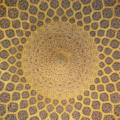Rainer Maria Rilke’s God-infused Poetry speaks of our yearning for completeness
Today’s entry is about Rainer Rilke’s poetry, which is spiritual, often close to mystical, and whose poems, translated and collated in Rilke’s Book of Hours, Love Poems to God by Anita Barrows sprang from what he described as “inner dictations”. Within my spiritual counseling sessions we discuss these and similar poems, so apologies for repeating any info here!
I
In poem 1.45 of his book, he writes,
“You come and go. The doors swing closed
ever more gently, almost without a shudder.
Of all who move through the quiet houses,
you are the quietest.
We become so accustomed to you
we no longer look up
when your shadow falls over the book we are reading
and makes it glow. For all things
sing you: at times
we just hear them more clearly.
Often when I imagine you
your wholeness cascades into many shapes.
You run like a herd of luminous deer
and I am dark. I am forest.
You are a wheel at which I stand,
whose dark spokes sometimes catch me up,
revolve me nearer to the center.
Then all the work I put my hand to
widens from turn to turn.
The poem refers to one of Rilke’s recurring themes: an ever-present presence that in another poem, 1.19, he directly addresses:
Don’t you sense me, ready to break
into being at your touch?
These verses and others like them give voice to the yearning we experience for completeness, for what we term God: a yearning so taut, at times, that Rilke feels as if on the brink of destruction. Even if we don’t share this particular desire, we understand how the sudden breaking of tension can knock down the supportive structures we’ve erected within ourselves–think, for instance, of a mother breaking into tears at the recovery of a lost child.
Another one of his themes relates to the interdependence between all things, to the creation of each other. Limited understanding here… but it seems very quantum physics-ish: that by perceiving something we cause its manifestation.
I know that nothing has ever been real without my beholding it.
All becoming has needed me.
My looking ripens things,
and they come toward me, to meet and be met.
And this interdependence, this reciprocity, Rilke maintains, is shared not just between us and all creation, but between the creator and us.
“What will you do, God, when I die? …without me what reason have you?
(i.36)
Translator Anita Barrows understands it slightly differently: “A person (or a thing) comes to exist by being met in the most authentic way by another. My practice of psychotherapy has been deeply informed by the Jungian principle of reciprocal individuation, which means that a deep and loving encounter is what generates development. How close this is to Rilke’s declaration that our greatest summons is really to see the things of this world. We are because we are seen; we are because we are loved. The world is because it is beheld and loved into being… We are,” she concludes, “in the world to love the world.”
Not, I might add, because of anything inherently special about the world–merely because it is, as we are, an aspect of the divine.

